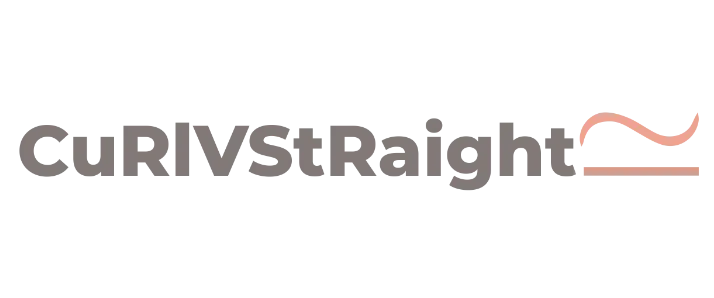
Isn’t it frustrating? You glance in the mirror and there it is—a thinning patch that wasn’t so noticeable before. Or maybe you see more hair in your brush after you’ve styled it than you’d like? If you’ve been wondering whether something more is at play, you might just find what you’re looking for in the intriguing world of trichology. Before we dive into trichology hair loss treatments, let’s explore what trichology actually is and how it can be a game-changer in your pursuit of luscious locks.
What is Trichology?
At its core, trichology is the scientific study of the hair and scalp. Think of trichologists as the hair’s version of allergists or dermatologists—specialists who hone in on a very specific problem we don’t always give the attention it deserves. Hair is more than just something you style; it’s a reflection of your health.
Trichologists are trained to analyze and treat various issues related to the hair and scalp. So if your hair is a frustrating topic right now, a trichologist could be your new best friend.
The Role of Trichologists in Hair Loss Treatment
The Initial Consultation
You start your journey with a detailed consultation. This is basically the groundwork where the trichologist examines your hair and scalp closely, might ask a pool of questions about your lifestyle, diet, health history, and even stress levels. The goal? To piece together a puzzle that’s been causing your hair to misbehave.
Hair and Scalp Analysis
It’s fascinating what your hair and scalp reveal with trichologists’ tools! They use a trichoscope, a nifty little device that magnifies your strands up to 200 times—to detect weird patterns or stresses your naked eye misses. From here, they identify conditions like scalp infections, hormonal imbalances, or simply bad hair habits.

So, What Comes Next?
Remember, there’s no one-size-fits-all when it comes to hair. Once the analysis wraps up, your trichologist crafts a treatment plan just for you. This might involve treatments you can do at home, dietary recommendations, or products like specialized shampoos and conditioners.
Common Hair Loss Concerns and Trichology Treatments
1. Thinning Hair
Perhaps the most common worry. Thinning can stem from many things—genetics, stress, dietary deficiencies. Often, hair experts will suggest nutritional supplements (hello B-complex vitamins!) or low-level laser therapy (LLLT)—safe red light treatments that have grown in popularity.
2. Alopecia
It’s alopecia areata when the immune system targets your hair follicles, causing patches to vanish. Trichologists might suggest corticosteroid applications or topical immunotherapy. Hang in there; they’re well-versed in these options!
3. Scalp Disorders
Too oily? Too dry? A happy medium isn’t as common as you’d think! For scalp psoriasis or seborrheic dermatitis (oily scalps giving you flakiness for days), tailored treatments like medicated creams or even light therapy play significant roles.
The Lifestyle Factor
Oh yeah—the lifestyle factor. Your sleep, diet, exercises, they’re all partners in this hair saga. Trichologists often emphasize cutting down on processed foods and introducing more protein. Plus, they suggest stress-operated hobbies like yoga as stress can be a real hair fall culprit. I know, it always circles back to stress, doesn’t it?
Don’t Forget About Age and Genetics

Naturally, as age creeps in, hair might get lighter or refuse to stick around. And while you can’t fight genetics, a trichologist can’t change the sheets but can improve the condition. They are your heads-up if your dihydrotestosterone (DHT) levels are looming high; those pesky hormones that don’t help hair loss.
Hair Specialists You Didn’t Know You Needed
You don’t need to wait until your hair concerns turn catastrophic—if you’re steering clear of satisfaction just weeks after every do it yourself approach fails, or simply tired of false online fixes, hair specialists like trichologists save so much hassle.
DIY vs Professional: When Do You Need a Trichologist?
In a digital age where solutions are a scroll’s distance away, you might be dealing with what’s like self-diagnosed hair issues. Online advice is good, it can be, but half-truths don’t solve persistent conditions. A trichologist provides verified assurance.
Signs It’s Time to Call a Trichologist:
- Persistent itching or scales despite changing products.
- Significant patterns or rapid shedding.
- Hair won’t grow past a certain length.
- You want expert opinion on supplements.
Trust the Process: Timeline and Expectations
Like any good story, hair regeneration is a journey. Changes don’t happen overnight, so it’s important to trust the path. Preliminary improvements—maybe reduced shedding or happier scalp already—can peek through at a month. But long-term growth takes commitment, months ranging onwards.
Keeping It Real: Alexander’s Story
Picture Alexander, an energetic 34-year-old who sees his forehead rising higher in the mirror than ever. Desperate, he ponders quick-fix essentials before consulting a trichologist. With subsequent balanced diet revamps, scalp treatments, and fortnightly updates, six months (and hair consistency improvements) tells a far better story.

Measuring Success: What’s Working and What’s Not?
Creating periodic reviews based on observation cards, like who knew documenting shampoo/shower anomalies led to being the beacon of better hair days ahead, is beneficial.
Practical Takeaways
- Consultation is crucial. Understanding remains key; fancy enough, trichologists solve puzzle pieces for your inquiry.
- Be patient. Miracles are Internet chatter. Hair improvements quietly unravel behind seemingly stalled progress. Enjoy small victories.
- Lifestyle, lifestyle. Much overlooked but so worthwhile. Remain purposeful in sustaining your nurtured mane with sound nutrition and stress reducers.
- Missteps happen. It’s alright. Sift through overloaded advice smartly. Trust only the most learned voices.
Wrapping it Up
So now you’re more versed in trichology and hair loss, huh? Knowing the potential within this sphere surely lightens frustration over strands. Pro tip—engage with your trichologist readily, dish out grievances—they’re allies fostering what advice alone can’t spur, smooth-awaited growth.
Always remember, beneath those locks runs stories of health, nourishment, patience—trichology unravels these tales. Your glow might just start with the next hair flip. Give it a try; trust me on this one.
— Embrace your hair journey wholeheartedly!
Frequently Asked Questions
What is Trichology and how does it relate to hair loss?
Trichology is the para-medical science of the hair, hair loss, and associated scalp problems. It involves the study of the diseases of the human hair and scalp, as well as the assessment and treatment of these disorders. Trichologists specialize in diagnosing and treating various types of hair loss, including androgenetic alopecia, telogen effluvium, alopecia areata, and more[1][2][4).
What does a trichologist do to help with hair loss?
A trichologist conducts a comprehensive evaluation of the client’s medical history, lifestyle, diet, and recent stressors or hormonal changes. They perform scalp examinations and microscopic hair analysis to identify the cause of hair loss. Based on the diagnosis, trichologists create customized treatment plans that may include topical treatments, oral medications, laser therapy, nutritional counseling, stress management, and scalp treatments. They also monitor progress and adjust treatments as necessary[2][3][5).
What types of hair loss can a trichologist treat?
Trichologists treat various types of hair loss, including androgenetic alopecia (male and female pattern baldness), telogen effluvium (widespread thinning and shedding), alopecia areata (autoimmune condition causing patchy hair loss), traction alopecia (caused by excessive tension on the hair), and scarring alopecia (inflammation causing permanent hair loss). They also address conditions like hair shedding, scarring alopecia, and excessive unwanted hair (hirsutism)[2][3][4).
How does a trichologist differ from a dermatologist in treating hair loss?
A trichologist is not a medical doctor but a specialist trained in the study of hair and scalp disorders. While they can diagnose and treat many hair and scalp conditions, they cannot prescribe drugs or perform medical or surgical procedures. Trichologists often work closely with dermatologists and other medical professionals to ensure comprehensive care for underlying medical conditions that may be contributing to hair loss[1][3][5).
References- What Is Trichology. World Trichology Society.
- Hair Loss & Trichology. Jasmine Rae Hair Co.
- What Is a Trichologist?. WebMD.
- What is Trichology. The Institute of Trichologists.
- WHAT IS TRICHOLOGY?. Hairline Clinic.



Leave a Reply